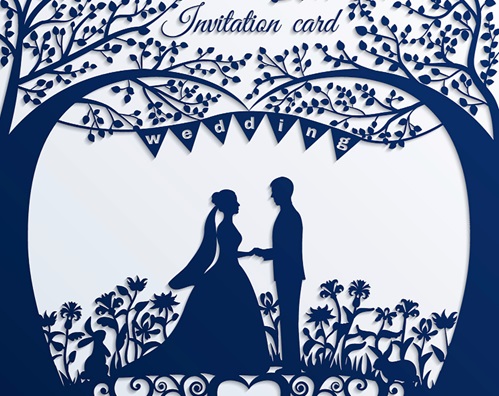There is a saying in London which runs “You wait for ages for a bus and then two come along together”.
This truism hit me on several frustrating occasions when I lived in the UK many years ago. Transposing this to Ghana in a different context, I have not been to a funeral, wedding or other social function for quite some time.
This has invariably meant a long, lingering lie-in on Saturday mornings followed by a lazy waakye or fufu brunch and then pottering around the house.
Suddenly, like the proverbial London bus, several invitations have tumbled in at once, so that over the next six weekends or so, I have four funerals, one wedding, one festival and one school event to attend, with a birthday celebration to round off.
How did the elements conspire and align so diabolically, particularly with each of these events taking place away from Accra? This weekend alone, three funerals beckon – one in Konongo and two in Kumasi (including the funeral of my classmate and brother from Opoku Ware School, Bernard Gyawu, whose school number was AF100).
A master of wordplay, Bernard was regular at our year group’s social gatherings, always insisting that “you cannot meet and eat meat without me”. Sadly, on Saturday, we will be doing just that as we sing a dirge too soon in his memory.
Perhaps the veneer of a silver lining when it comes to Akan funerals in particular is that each comes in parts over the weekend, which makes it possible to honour several invitations and not give offence to each person or family that has extended the invitation.
Essentially, therefore, one has to master the skill of distributing oneself over several funeral invitations in a ‘tot-tot’ manner, akin to how akpeteshie sellers dispense their liquor.
First is the lying-in-state on Saturday at dawn, conjoined with burial rites and burial service. Then there is the afternoon session, which runs from about 1p.m. till 6. In many cases, one can honour all or most of them by simply turning up at each session, greeting, getting noticed by one’s host, hanging around for a short while before dashing to the next one with apologies, having of course made one’s donation.
The tricky part lies in where the funerals are quite far apart. Even then, those with their own means of transport are able to honour invitations in a cross-country manner of sorts.
The Sunday thanksgiving service and the afternoon family gathering also offer ample opportunities to enable one to honour several invitations on that day alone. Where one’s relationship with a bereaved friend or colleague is particularly strong, just sending one’s donation and staying home may not quite cut it.
Not all gloom
Despite being yanked away from Accra and from my comfortable bed over the next few weekends, I suppose I should be thankful it is not all about dark clothes, mourning and long faces.
Next weekend, a wedding beckons in Cape Coast, one of my favourite towns in the country, which will provide some respite as I intend to spend the entire weekend there and return to Accra on Sunday.
The following weekend I am back to Kumasi and to Opoku Ware School for an inauguration event, then to Koforidua for a funeral the following weekend, followed by another trip to Cape Coast for the Fetu Afahye at the invitation of a good friend, then finally to Kumasi the next weekend to celebrate my birthday.
At least with the non-funeral events, there is no ‘tot-tot’ element and I intend to enjoy them to the fullest.
Communal spirit
In my teenage years and in my twenties when parties, not funerals, were all that existed on my social radar, I found it bizarre that my middle-aged relatives seemed to have funerals or find a funeral to attend every weekend. I actually thought they actively went sniffing for funerals.
Now I am much older and of course, much wiser about the ways of the world, and in the process I have accumulated lots of black clothing. On some occasions I have even accompanied friends to funerals of people I had never met and whose bereaved families I did not know.
The proverbial story of the piglet who wondered aloud to its mother why her snout was so big, and her retort to the piglet to wait until she comes of age is one I find quite handy as I reflect on the punishing schedule of the weekends ahead of me.
Generally, we take our rites of passage seriously and in a communal manner, whether it is to do with child-naming, marriages or funerals. The notions of ‘strictly by invitation’, particularly with respect to wedding receptions and birthday parties, complete with surly bouncers inspecting invitation cards, and ‘private burial’ in respect of funerals, are rather recent introductions that are more fashionable in urban, high-end circles.
Essentially social functions in our parts are exactly what they are – an opportunity for the community to come together and mourn with the bereaved or celebrate with the celebrants.
In spite of the demands and pressures that these can bring, I believe that the communality can be quite cathartic, as I found with my late father’s funeral almost a decade ago.
Long may this spirit continue.
--------------------
System Summary
Four funerals, a wedding and some partying
The article explores the multifaceted role of funerals, weddings, and parties in Ghanaian culture. It discusses how these events are not just social gatherings but are deeply intertwined with the Ghanaian way of life, reflecting cultural values, social structures, and economic dynamics.
The piece also highlights the challenges of financial pressure and offers recommendations for maintaining cultural significance while avoiding excessive economic burdens. The financial demands of these events can sometimes overshadow their cultural and social purposes, leading to a focus on material display rather than the intrinsic cultural values.

